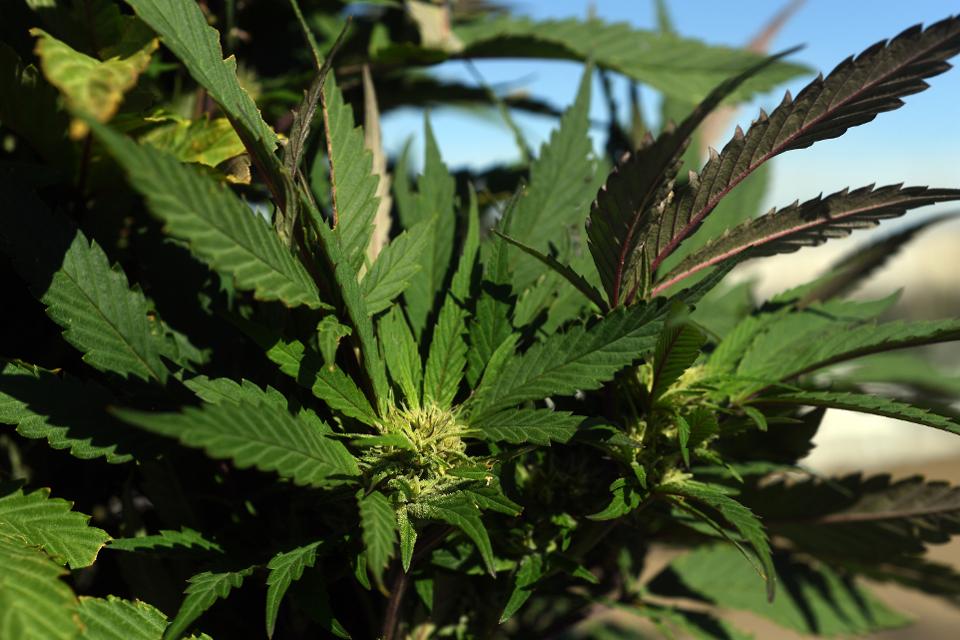Texas: As Many Focus on the Midterms, Pro-Cannabis Energy Builds Around 2019
When it comes to cannabis, even the consequential congressional midterm elections here serve as a primer for the main event, when the Texas General Assembly reconvenes next year.
Texas is often painted with a broad brush by those who believe the nation’s second most populous state is an intractably conservative, deep red stronghold where cannabis law reform can only go so far.
The coming months will determine whether that camp can be proven wrong. Indeed, the states’ cannabis proponents have high hopes of a more pro-cannabis future in Texas—but they’re holding out for when the General Assembly reconvenes.
November’s midterm elections, particularly for the US Senate and the District 32 House race, may offer a window into whether, and by how much, voters can be swayed by cannabis policy. While voters won’t cast a ballot on the issue directly, they will choose between candidates that are miles apart on cannabis issues (and, granted, many other issues along the blue-red divide).
Democrats Beto O’Rourke and Colin Allred are both open to cannabis, unlike their opponents, stalwart Texas Republicans Sen. Ted Cruz and Rep. Pete Sessions, respectively. But a Democrat hasn’t held a US Senate seat in the state since 1993, and Sessions is an eight-term incumbent.
Midterm results will no doubt shape a political landscape ahead of state lawmakers’ next session in January 2019, during which cannabis proponents hope they can convince them that the state’s limited medical cannabis law needs a drastic overhaul.
SUBSCRIBE TO CANNABIS WIRE'S MORNING NEWSLETTER
Original news and analysis from veteran journalists—straight to your inbox every weekday morning. (This newsletter is free now, but will soon be available only to subscribers.)
Email Address
In 2014, a tech company investor who has been active in the pro-cannabis movement approached Rob Kampia, the founder of the Marijuana Policy Project and its former executive director, with a question: If he could start a legalization movement in a place where the politics would pose a challenge, where should he go?
Kampia told
Cannabis Wire that he chose Texas because of its below-the-surface liberal tendencies, because it already had solid activists working in the state, and because of local media coverage that often framed cannabis reform issues positively. The investor provided $100,000 in startup funds for the effort, which paid for an advocate, Heather Fazio, and a part-time lobbyist to start working.
When Kampia began to work on cannabis legalization efforts in Texas years ago, he said many in the pro-cannabis community were skeptical of what could realistically be accomplished. “They were saying Texas is impossible,” Kampia said.
On one level, that early effort was a success, helping to pass the state’s first medical cannabis law in 2015. But the law allows just three cannabis operators in the state—licenses all given to out-of-state companies—who can sell only a limited supply of low-THC, high-CBD oil to those with epilepsy.
Kampia and others became deeply critical of the final bill, which they say was largely gutted at the last minute. “It is accidentally working for a handful of patients with chronic seizures,” he said. “The program is working despite the legislature, not because of the legislature.”
Texas has two-year legislative sessions, meaning if cannabis advocates are unsuccessful during the legislative session that starts in January they’ll have to wait until 2021 to try again. “It is all hands on deck right now,” says Fazio, who leads a coalition of pro-cannabis legalization groups under the banner of
Texans for Responsible Marijuana Policy. “We can’t leave anything on the table. If we don’t do it in 2019 we have to wait until 2021 to get a crack at it.”
Significant groundwork within the state GOP has already been done, with advocates successfully pushing for Republican party leaders to approve pro-medical cannabis party planks at the state GOP convention in June. Surprisingly, efforts to change the official Texas GOP
platform planks to include support both for medical cannabis and decriminalization faced little opposition, garnering about 80 percent support, Hunter White, a spokesman for the group Republicans Against Marijuana Prohibition (RAMP), told
Cannabis Wire.
Republican support for pro-cannabis measures has increased because of early organizing at the local level, and because of religious groups who supported medical cannabis because of what it had done for patients, White said
.
“Surprisingly, everybody was on board as soon as we explained to them how Texas was going about medical,” White said, noting that many had worried about a more permissive program, like the one first implemented in California.
The state’s conservative nature, though, is one reason why some cannabis reform supporters still might not support pro-cannabis Democrats. There are members of RAMP and others in the Texas pro-cannabis movement who won’t vote for O’Rourke—one of the most outspoken pro-legalization Democrats to run for office anywhere—because of his stance on abortion, White said. Others simply won’t vote for a Democrat, often for reasons having to do with gun control, another litmus test in Texas.
That dynamic is part of the reason that Kampia says he didn’t raise the $500,000 in funds he had promised to in an attempt to unseat Pete Sessions, the subject of a previous
Cannabis Wire story.
The Texas Cannabis Industry Association, meanwhile, has set up a smaller effort in hopes of unseating Sessions. The group pushed out a digital ad recently taking aim at Sessions’ record, and has used block walks and other get-out-the vote efforts to target some 86,000 voters who don’t usually show up at the polls in Sessions’ district, said Patrick Moran, an association founder.
The cannabis industry generally can’t stand Sessions because of his powerful perch as chairman of the House Rules Committee, where any and all cannabis-affiliated legislation has been buried since he took over as chairman in 2013.
Celinda Lake, a Democratic pollster, surveyed potential voters during the Democratic primary in the Sessions’ race. Her research showed that his anti-cannabis stance is deeply unpopular, more so than is understood by most political consultants. “People thought ‘this is ridiculous—you’re outdated,’” she told
Cannabis Wire. Voters, she said, think that Sessions “better catch up or get out.”
Allred, Session’s Democratic opponent, has said he supports cannabis use for medical purposes. But he doesn’t list it as an issue on his
website and has focused more on Sessions’ support of President Trump.
Moran, of the Texas Cannabis Industry Association, said he also believes it’s a risk to focus solely on cannabis, which is why his group is pointing out the civil rights implications of cannabis law reform and other issues related to Sessions’ record.
Yet while the group has a temporary focus on ousting Sessions, Moran told
Cannabis Wire that his goals also center around the 2019 legislative session. Working on the Sessions race, he said, “is a win either way. There’s no real political machine or infrastructure in place for a cannabis movement in Texas. We want to take out Sessions, but we have a win by building our the infrastructure and being able to apply it down the road. ”
After the 2015 legislation was gutted behind the scenes, Moran said he wants to take a tougher stance with the legislature. “Holding out an olive branch gives [lawmakers] a stick to hit us with,” he said.
Similarly, Kampia isn’t interested in anything that is mostly symbolic—such as adding a few medical conditions to the current law. Too many lives are affected by criminalizing cannabis, he said. “There’s a middle ground that’s also failure,” he said.
 How is it in this day and age, with all the information out there on the benefits of cannabis, that this type of nonsensical thinking still exists? Especially against the will of the people?
How is it in this day and age, with all the information out there on the benefits of cannabis, that this type of nonsensical thinking still exists? Especially against the will of the people?






